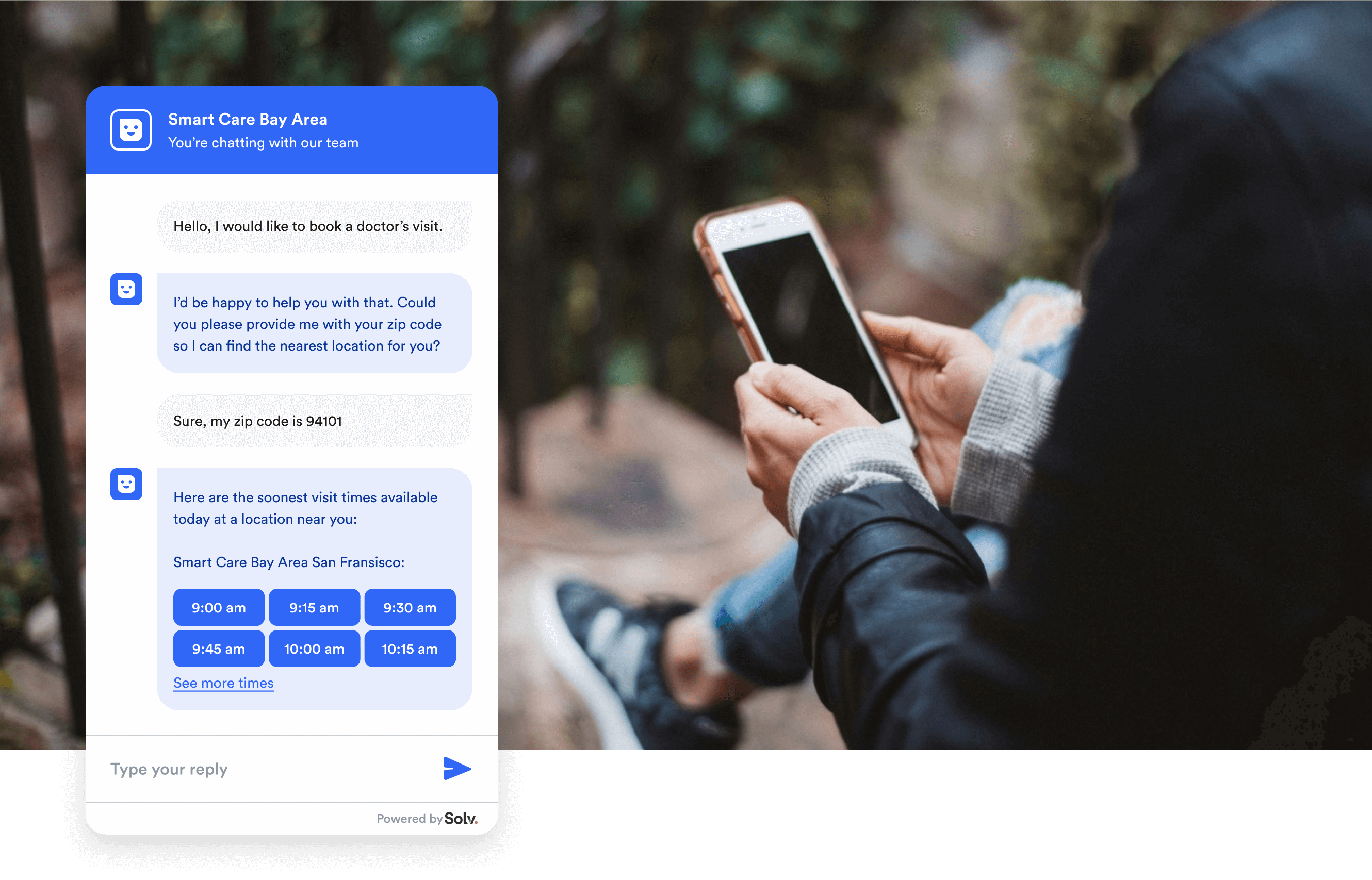Solv Assistant custom AI chatbot
We helped Solv develop their new Solv Assistant, an interactive artificial intelligence chatbot that they are seeking to white-label for their partners’ websites. The embeddable Assistant will allow patients to access it anywhere on the urgent care or clinic’s website.

Bringing the Solv Assistant “to life”
The major problem that we solved alongside our long-term partners at Solv was, “How can we take a large language model (LLM), teach it what it’s allowed to do, and then allow it to interface with all of the services Solv already uses to create a meaningful, cohesive user experience?”
We programmed the Solv Assistant chatbot to interface with Solv’s booking, location, and SMS systems. To do this, we used a GPT-4 LLM hosted by Azure OpenAI Service and developed a dynamic prompt system that encourages proper responses and reduces AI hallucinations. The Assistant now provides users with personable, friendly conversations across the site; patients can talk to it, ask it to find urgent care or clinic locations near them, ask about insurance and services, and even book an appointment at a nearby location.

Safeguards to protect the users’ privacy and health
Important guardrails in the healthcare industry include that the Assistant is not permitted to perform triage, store protected health information (PHI), or give any healthcare advice. If patients ask for healthcare advice, the Assistant clearly states that it is not allowed to provide that and then offers to send the user to a live person at a physical location via Solv’s pre-existing SMS service.
Benefits of the Solv Assistant AI
Faster booking
Capacity management is a major obstacle to outpatient care delivery. Because the Solv Assistant is connected with Solv’s booking API, patients who book through the Assistant can trust that appointment times are accurate, and clinics can watch their calendars fill up in real time.
Less costly patient interactions
The Solv Assistant provides friendly, fast, and personalized help that also prevents unnecessary calls. This frees up money that clinics would have to spend on someone answering the phone to be spent on something else while broadening the service offering to those who would prefer to ask questions and book online.
Targets a new audience
Many of today’s patients prefer to perform all of their healthcare, financial, and other important interactions online rather than making a phone call. The Solv Assistant allows clinics to appeal to this new segment of patients who are more comfortable with online interactions over phone calls.
“..[They] think strategically on your behalf.”
Lots of firms will build you a website. I've hired many of them. Far fewer will actually take ownership and think strategically on your behalf. By the Pixel is one of the good ones, a true partner.







